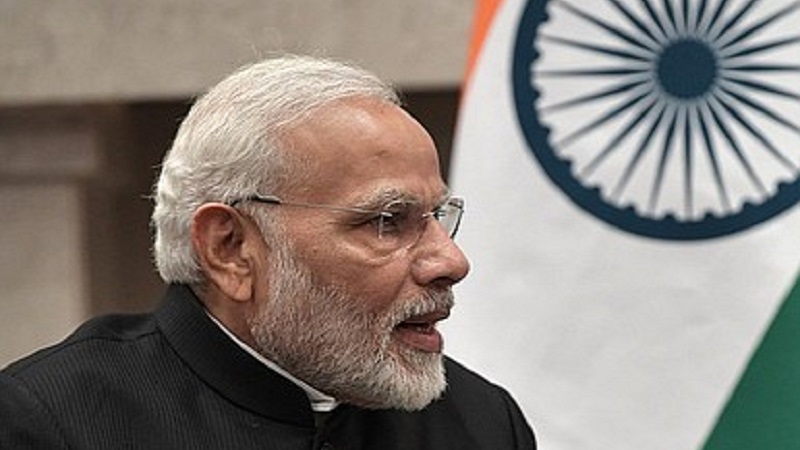As India prepares to go to the ballot box, its equities remain prohibitively expensive for many investors and that is unlikely to change if incumbent Narendra Modi, favoured by markets and pollsters, nabs another win.
From 11 April to 19 May, Modi and his Hindu nationalist Bharatiya Janata Party (BJP) will face off against the main opposition Congress, led by Rahul Gandhi.
Edward Robertson, founding partner and global emerging markets strategy lead manager at Somerset Capital Management, says Modi’s reign has played a role in their allocation to Indian stocks. “Modi’s reforms strike at the root of corruption that has long been India’s bane. Investors, including Somerset, in general, have been encouraged in that these reforms set the tone for the long-term performance of the economy and the markets.” He points to GST, RERA, IBC “to name a few” as reforms that have “fundamentally changed the way business will get done in India”.
Emerging market funds with the highest allocation to India
| Fund name | Allocation |
| Newton – Global Emerging Markets | 23.27% |
| MI Somerset – Global Emerging Markets | 22.89% |
| AXA – Framlington Emerging Markets | 22.76% |
| MI Somerset – Global Emerging Markets Screened | 19.87% |
| First State – Global Emerging Markets Focus | 18.70% |
Source: FE Analytics
However, those underweight on India remain more sceptical on equity valuations.
Emerging market funds with the lowest allocation to India
| Fund name | Allocation |
| M&G – Global Emerging Markets | 2.11% |
| UBS – Emerging Markets Equity Income | 3.30% |
| JPM – Emerging Markets Income | 4.00% |
| T. Rowe Price – Emerging Markets Value Equity | 4.30% |
| Artemis – Global Emerging Markets | 4.35% |
Source: FE Analytics
Michael Bourke, manager of the M&G Global Emerging Markets fund, says his low allocation to India is because the country remains “one of the most expensive markets in our universe”. “This has, to some degree, been impacted by Modi’s reign.” Robertson too admits valuations in the country can be “challenging”.
Bourke’s fund currently has the lowest allocation to India within the Investment Association Global Emerging Markets sector at 2.11%.
The M&G GEM fund added to India back in 2013 when investors fleeing the “fragile five” – emerging markets with worrying current accounts deficits – created a buying opportunity. Bourke says they ended that year with a significant overweight. “The narrative surrounding India however quickly changed as investors bought into Modi’s reform agenda and his election to office in early 2014. Ever since then the macro narrative has remained broadly positive and the market’s valuation consequently expensive.”
Nationalist narrative helps Modi at the polls
Aviva Investors portfolio manager Aaron Armstrong, who has just returned from a week-long investment research trip in India, said Modi fans had been nervous as his poll numbers dwindled at the beginning of 2019, with insufficient job creation and disruption caused by his demonetisation programme.
However, sentiment has since changed, Armstrong says.
“Flash forward two months and the script has flipped, with a nationalist narrative around the recent clashes with Pakistan and even a demonstration of anti-satellite missile capabilities boosting Modi’s strongman image. The way things currently stand, we would expect Modi to win another term in office, with his National Democratic Alliance coalition coming away with a strong majority in the lower house.”
India’s long-term course has been set
A Modi loss, which would come as an upset based on current polling, wouldn’t fundamentally change India’s long-term course – or Somerset’s allocation – according to Robertson, even though he describes the Modi regime as “one of, if not the best government in the world over the last few years”.
Most of Modi’s reforms are “irreversible and long-term in nature”, he says.
Ian Smith, portfolio manager, Axa IM, says: “It is our belief that the benefits of the reform and progress achieved under Modi’s term in government have yet to be properly realised and will play out for some time to come.
“New bankruptcy and real estate laws will change behaviour of economic agents for the better, and eventually help to bring down the cost of capital. The implementation of GST (goods and service tax) across the country has faced teething problems, though will eventually help the government to improve tax collections, make supply chains more efficient and provide a boost for companies willing & able to play by the rules.
“The prevailing base case outcome appears to be a coalition government led by the BJP. Our sense is that markets would, in the near term at least, react negatively to a Congress victory, and react positively to an outright BJP majority.”










